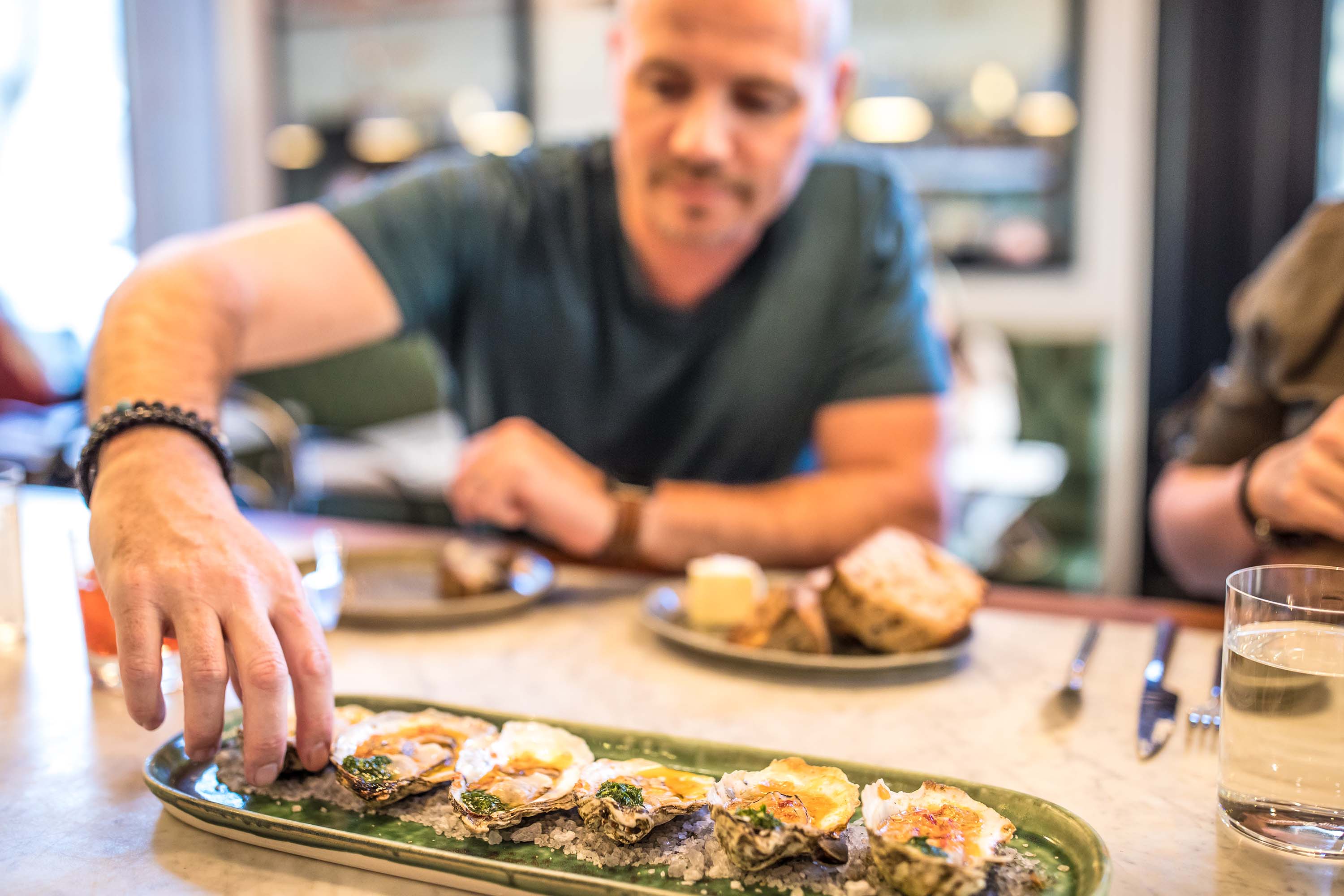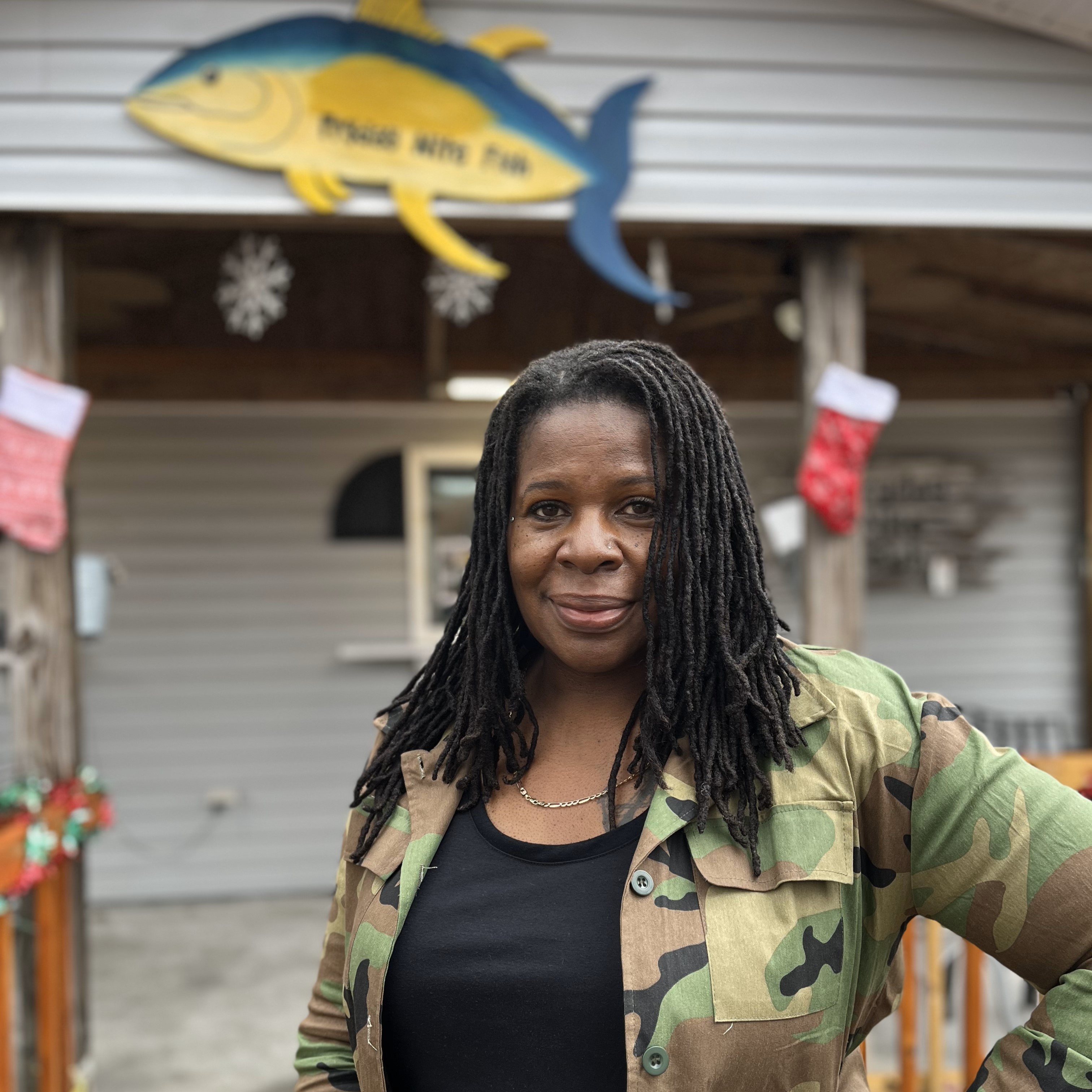Seafood consumers should have a say

Seafood consumers, an untold subset of North Carolina's population of 10.7 million, are an important fisheries stakeholder group, yet they are consistently left out of fisheries management discussions and decisions.
That was the message NC Catch shared when our board chair Barbara Garrity-Blake and vice-chair Jess Hawkins were invited to a meet-and-greet with N.C. Department of Environmental Quality Secretary Elizabeth Biser, on Dec. 8, 2021.
"Our mission is to raise consumer awareness about the benefits of eating local seafood," Garrity-Blake said of NC Catch. "We do this through our chef ambassador program, our Catch Summit, and information distributed via social media and live events."
Here is the NC Catch statement that Garrity-Blake shared at the meeting, also attended by representatives of the coastal environmental protection organizations, commercial and recreational fishing groups and N.C. Sea Grant.
"We maintain that marine resources should be managed not just a natural resource, but a food resource as well, central to food security, our food supply chain, and the local $300 million food economy.
"Seafood consumers, an untold subset of NC’s population of 10.7 million citizens, are an important stakeholder group, yet they are consistently left out of fisheries management discussions and decisions. In a 2021 Sea Grant-led economic impact analysis (Nash, Harrison, Whitehead 2021), 1,600 residents were surveyed across the state.
- 83% reported that shrimp was by far their favorite seafood.
- 98% preferred local over imported seafood.
- 94% recognized that buying local helps support coastal livelihoods.
- 70% believed that it was good for the environment to purchase seafood from NC fishermen.
This research confirms that consumers are savvy regarding sustainability. They want to know where, how, and by whom their seafood was sourced, and they want the least amount of distance between boat and plate.
"We make sure consumers know that our NC fleet is made up of licensed, profession fishermen who abide by the rules, comply with regulations, and have cooperated to protect sea turtles and reduce bycatch by more than 40%. NC fishermen (their numbers down by half since the mid 2000s) are small-boat, tight-knit family operations.
"We’d like to see a management process that is inclusive, just, and fair, with mechanisms put in place that lend greater stability to the seafood system: greater collaboration with industry, increase use of our advisory committees, and opportunities for meaningful stakeholder engagement (including consumers).
"We’d like to see a more appropriate timeframe between regulatory proposals and regulatory decisions. The process as it stands today exacerbates instability in the markets, and trauma among fishing families who can literally lose their livelihoods with a stroke of a pen in mere days.
"We’d like to see a broader understanding of conservation to include the whole system, recognizing that putting undue pressure on the commercial sector weakens our local food supply chain and increases reliance on seafood imported from distant countries that have little or no conservation measures.
"A broader, systems view considers not only ecological linkages but social and economic linkages as well. Our fishermen are connected to, and embedded in, the very social and economic fabric of coastal communities, enabling them to give consumers access to the most sustainable, delicious, and nutritious seafood available. It’s increasingly rare to know where your food comes from. We’d like to see our local food systems better supported by the great state of North Carolina."





